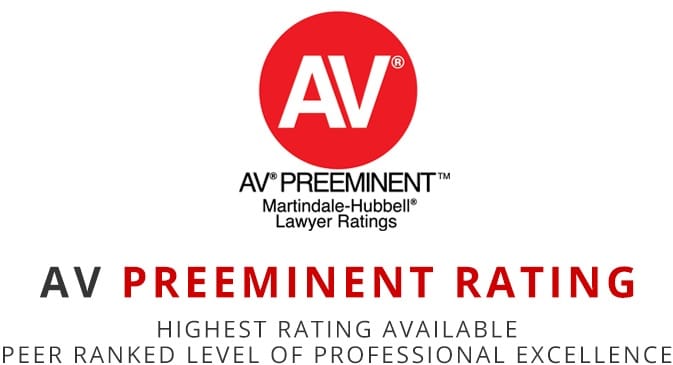Experienced Child Custody Attorneys in Greensboro
Our Experienced Child Custody Attorneys in Greensboro have decades of experience fighting for the best family arrangements.
There are a wide variety and range of legal custodial arrangements in North Carolina. For example, parents may share joint legal and equal physical custody of a child, or they may have joint legal custody with one parent having primary physical custody and the other parent having secondary physical custody or visitation. Another example involves one parent having sole legal custody and primary physical custody of a child and the other parent having secondary physical custody of or visitation rights with the child. Shared physical custodial schedules may range from arrangements where the parent with secondary physical custody has the child every other weekend during the school year and on alternating holidays and for two weeks during the summer vacation, to arrangements where the parents share 50/50 physical custody of the child by alternating weeks.
The best arrangement for you will depend on a large number of factors specific to your case, which would include (but not be limited to) both parents’ work schedules, the age of the child, the child’s schedule, the location of the child’s school or daycare, the child’s preference, the housing situation of each parent, and the role of each parent in the child’s life. As there is not a best “one-size-fits-all” custody schedule, experienced legal counsel is required to ensure you get the most appropriate custodial arrangement for your particular situation. Our experienced child custody attorneys in Greensboro will fight for the most fair results in your arrangement. Regardless of the custodial schedule used, successful custody arrangements are possible when parents are able to communicate effectively and cooperate in parenting their child together.
Child Custody Attorneys can provide Mediation and Arbitration
If parents cannot come to an agreement resolving their custodial issues, they may try to resolve them through methods of Alternative Dispute Resolution (ADR) such as mediation or arbitration. While arbitration and mediation are more commonly used in a formal litigation process, they can also be used before litigation begins to help the parties resolve their dispute in a manner that is less stressful, less expensive, and more quickly resolved. It also gives the parties greater control over the outcome. Arbitration and mediation both employ a neutral third party to assist the parties to resolve their dispute, but differ in the role that the third party plays. Our Greensboro child custody attorneys have decades of experience providing this service to families. Regardless of the form of ADR used, the assistance of an attorney is still needed to ensure that your legal rights are being adequately protected.

(336) 379-1390
Family Law Services
In arbitration, one or more arbitrators acts as a judge, and following an informal hearing, gives a written opinion which resolves the contested issues between the parties. Before arbitration is commenced, the parties agree upon the rules to be used, including the format of the hearing and whether the ruling of the arbitrator is to be binding or non-binding. In comparison, mediation involves a neutral third party who attempts to facilitate an agreement between the parties. The appointed mediator tries to get the parties to come to a mutually agreed-upon resolution, but has no authority to force any of the parties to settle and the mediator does not issue an opinion or ruling of any kind. Unlike arbitration, a mediation sometimes does not produce an agreement and the parties are left to take further action to resolve the dispute. In private mediation, your child custody attorney will accompany you and provide guidance as well as to draft any agreements that are reached. A mediation can be completed in one day, and by working together to reach a resolution the parties can set the tone for how you will co-parent moving forward.
Agreements entered into through ADR such as arbitration or mediation often set forth mechanisms that allow the parties in the future to modify the existing agreement. The agreement would set forth the circumstances and manner in which the agreement could be modified. It is important to remember that unless this agreement is made part of an official court order, the parties could not seek to have the court modify it at a later date. Instead, as set forth below, the parties would have to seek an initial custody determination with the court.
North Carolina Child Custody Law
Choosing the best Child Custody Attorney for your case
It is essential to choose a knowledgeable child custody attorney that will fight for you and your kids because it is difficult to know how to do this alone. Here is a summary of what to expect when legal custody is being determined.
In North Carolina, if the parties are not able to come to an agreement on a custodial schedule, a custody action may be filed by either parent in District Court in the county in which the child resides. It is important to note that a court will not be able to hear the case unless the child was a resident of North Carolina for at least six consecutive months immediately before the commencement of the action. After the parties file a court action for custody, the parties are required to attend mediation and a parenting program, such as the Children's Home Society of North Carolina, Inc.'s "Parenting Under Two Roofs," offered through Family Life Education Services, before their custody dispute can be heard by a judge. These mediation programs are provided at no charge to the parties through the North Carolina Child Custody and Visitation Mediation Program. Unlike mediation in the ADR context, your attorney is typically not involved in the initial court-ordered mediation program.
If no agreement can be reached in mediation, custodial issues will be set for trial in front of a judge. At the trial, both child custody attorneys will have the opportunity to introduce evidence and testimony that presents their contention as to the best custodial schedule. At the conclusion of the trial, the judge will sign a custody order that determines who is awarded the child’s legal and physical custody. North Carolina law requires that the judge make this decision based on the best interest of the child standard.
Under the best interest of the child standard, which is set forth in North Carolina General Statute § 50-13.2(b), the judge is to determine what “will best promote the interest and welfare of the child.” The court is to consider any and all relevant factors of the child’s domestic life, and will make the final decision based on who is best suited to take care of the child. If all other factors are the same, then no preference is to be given to the mother over the father or vice versa. Natural parents are generally favored over third parties, such as grandparents, aunts and neighbors, unless the parents have acted in a manner that is not in the best interests of their children. Although the court may consider the wishes of older children in crafting a custodial or visitation schedule, the court will not let those children decide such issues.
The custody order that the judge signs will set forth the rights and responsibilities of each parent. These rights and responsibilities would establish all of the specifics of how the parties are to co-parent, including setting forth who has legal custody, who has physical custody, the details of how physical custody is to be shared, any special schedules dividing time around holidays, whether there are any restrictions on either parent, how the child will be transported between the parents’ homes, the method and frequency by which the parents are to communicate regarding the child, the method and frequency by which the parties can communicate with the minor child when they are with the other parent, and other rules on how the parties are to effectively co-parent the child and conduct themselves in relation to that child. Only the assistance of qualified legal counsel will ensure that you are being properly represented during custody litigation and a trial.
Child Custody Attorneys Can Also Help Modify an Existing Custody Order
Only custody orders (as opposed to agreements entered into outside of court) can be modified through the court system. If there is a custody order, these orders can be modified when one of the parents successfully shows that circumstances have substantially changed since the previous custody order and that those changes have affected the welfare of the child. Examples of scenarios that potentially constitute a substantial change include changes in the child’s schedule (perhaps due to schooling), changes in either parents’ employment, changes in the location or nature of either parents’ residence, criminal activity by either party, loss of employment by either party, a parent’s failure to follow the existing court order, or either party’s ability or inability to spend time with and care for the child.
In the event that you never obtained a court order but want to modify your custody agreement, then both parties would need to voluntarily agree to change the original agreement, or one of the parties could file a custody action with the court to make an initial custody determination, at which point the court would make their decision using the best interest of the child standard (discussed above).
Need To Enforce a Custody Order? We can help.
Law enforcement personnel will generally not assist you if the other parent is in violation of an order, so you will need experienced Greensboro child custody attorneys to assist you in enforcing a custody order. While there is no automatic punishment if a party violates the terms of an order, a violation does allow the innocent party the opportunity to request that the offending party be held in contempt of court for this violation. There are two different forms of contempt, civil contempt and criminal contempt. Criminal contempt is used when a party has failed to obey a court order and the court wishes to punish the offender for an act that has already taken place. The court’s punishment, consisting of a fine and possible jail time, is for a set term. On the other hand, civil contempt is used by a court to compel compliance with a court order. The punishment for civil contempt must always provide the offending party with a means to satisfy the violation and “purge” themselves from ongoing punishment. Parties held in civil or criminal contempt may also have to pay the attorneys’ fees of the other party.
Child Custody Rights for Grandparents and Other Third Parties
In general, there are only limited circumstances in which a grandparent or other third-party can successfully petition the court for custody or visitation. In some circumstances, grandparents can successfully bring a custody action if they can show that the child’s parents are unfit or have acted in a way that is contrary to their constitutional rights as parents. For visitation purposes, grandparents generally don’t have the legal right to independently file a visitation claim so a claim for visitation must be filed in conjunction with an active custody action. If you are a grandparent or other third party who is hoping to gain some level of custodial rights, contact our child custody attorneys today - a consultation will be needed to determine whether you are eligible to pursue your claim.
Family Law Team Awards & Recognition






RECENT FAMILY LAW RELATED POSTS
WE CAN HELP. GET STARTED HERE.
FIRM RECOGNITION




NC Super Lawyers


AV Preeminent Lawyers





